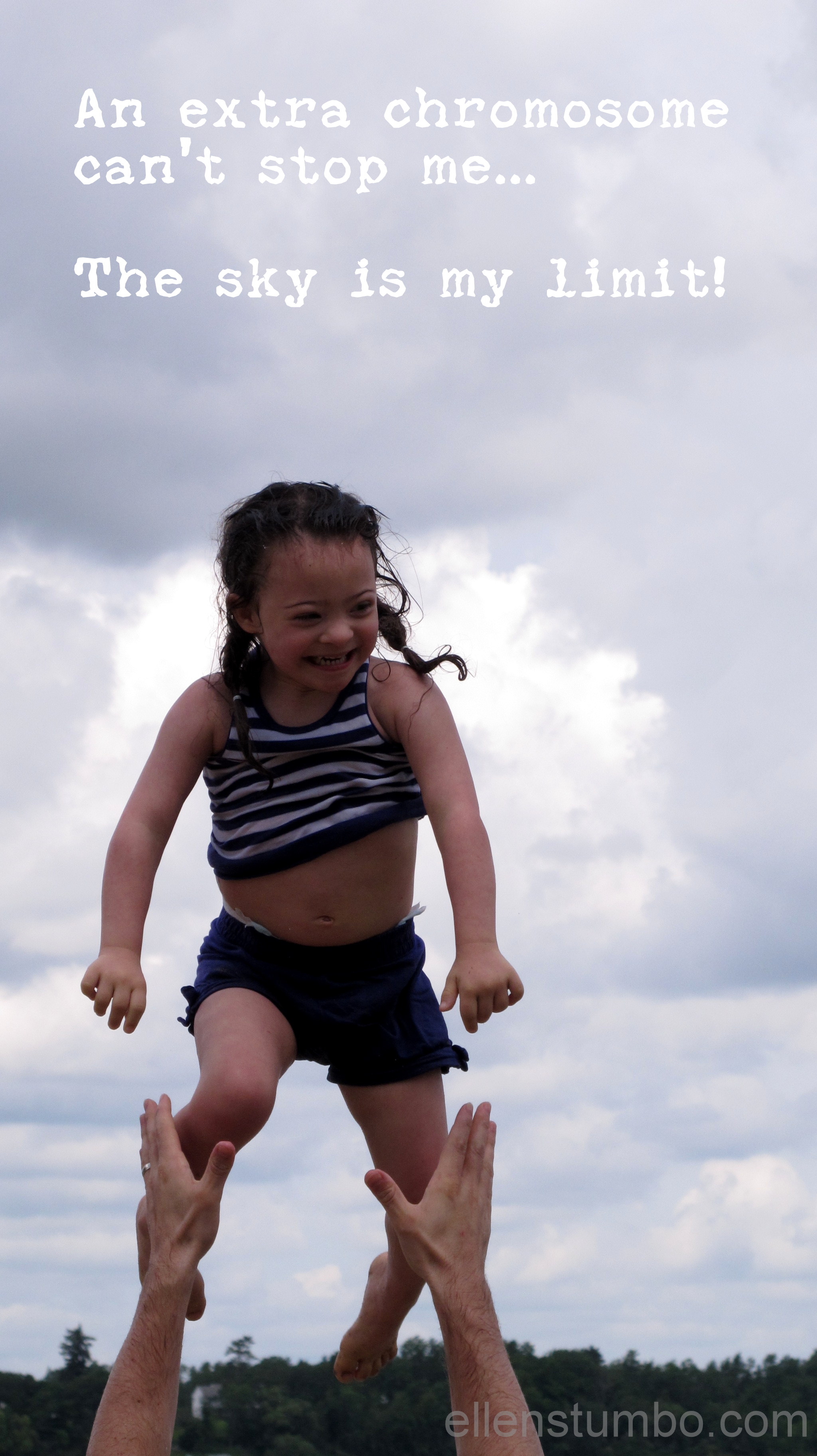A few years ago a friend of mine designed a t-shirt that read, “Don’t DIS my ability.” I have a daughter with cerebral palsy and one with Down syndrome, so I got the t-shirts for my girls because the sentiment is true, they each have great abilities. I don’t want anyone to limit them because of ignorance or myths about disability.
And because I know there are many misconceptions about disability, here are five things about disability everyone should know:
1. Disability is a part of life
It happens, it’s really that simple. Babies are born with disabilities, sometimes disability is discovered later in life. Sometimes disability happens as a result of an accident. Often disability comes along with old age. All of us – in some way and at some point in life – will be impacted by disability.
2. Disability does not discriminate
Disability does not discriminate against race, religion, culture, social class or how much money you have in your bank. It can happen to anyone. Anyone.
3. People are not their disability
I’ve heard it often, “She is Downs” referring to my daughter who has Down syndrome. No, she is not Down syndrome, she has Down syndrome. Down syndrome is something she has, not who she is. The same goes for any disability. People are not their disability, they are people first, and their disability is a part of who they are. Disability does not define a person, our shared and common humanity is what defines us. We are all made in the image of God.
4. People with disabilities have gifts and talents (AKA abilities!)
Just because someone has a disability, it does not mean they don’t have great abilities. People with disabilities have gifts and talents. Rather than focusing on what people cannot do, we need to focus on what people can do.
5. People with disabilities have meaningful lives
There is a myth that people with disabilities do not enjoy life as much as “normal” people. Enjoying life has little to do with disability and a lot more to do with a positive attitude and outlook in life. People with disabilities live rich and fulfilling lives, their lives have meaning, and beauty, and purpose.
What else would you add to this list?



I used the phrase “the sky is the limit” a lot when my son with ds was first born. Since then, I have heard my favorite quote… “Don’t tell me the sky is the limit when there are footprints on the moon!” 🙂
I would add that people with disabilities are no less human than any other person without a disability. They have feelings, emotions, likes and dislikes, they are very capable of being loved and to give love in their own special way. They are full of life regardless of the disability and their lives should be celebrated as such and not be ignored because of their lack of ability. I am a proud mother of 6, my 5 year old is on his 25th day of chemotherapy for Leukemia and my 4 year has been recently diagnosed with autism. Thank you Ellen for writing and encouraging your readers to also write. I ran into your blog before any of my children were diagnosed. I admired your faith, your warrior spirit, your passion for writing and your love for your children. I am an assistant pastor’s wife. Jesus is my strength and comfort for this journey. I write about my son’s story here: http://www.caringbridge.org/visit/rocwooldridge/mystory